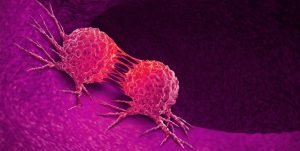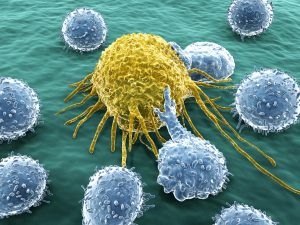Genomic analysis has shown that most of the mutations that are associated with lung cancer in non-smokers are not associated with external influences.
Lung cancer is the leading cause of cancer death. In 10-25% of cases, this tumor develops in non-smokers, it happens in them at a younger age than in smokers.
It is known that the risk of lung cancer is affected by factors such as passive smoking, exposure to radon and asbestos, and lung disease. However, scientists believe that their influence cannot explain such a prevalence of the disease in non-smokers.
In a new study led by experts from the US National Institutes of Health, scientists conducted genome sequencing of cancerous and normal tissues of 232 non-smokers with several types of lung cancer. The study was done before people started treatment.
The authors of the study first tested the cancer genome for known cancer-causing mutations that develop as a result of oxidative stress and the action of carcinogens. (Modern methods help determine which mutation caused the cancer.) Scientists have found that known oncogenic mutations do not explain some cases of cancer.
It turned out that in non-smokers, cancer-causing mutations are usually associated with endogenous gene damage, that is, with the impact of various processes occurring in the body. Even people exposed to secondhand smoke did not have mutations associated with direct exposure to tobacco smoke. The researchers note that there were relatively few participants in the study and it was not known how often they passively smoked.

“We need a large, detailed sample to study the impact of secondhand smoke on lung cancer in non-smokers,” said Maria Teresa Landi of the National Institutes of Health’s Division of Cancer Epidemiology and Genetics, lead author of the study.
The genome analysis also revealed three new subtypes of lung cancer in non-smokers. Scientists gave them musical names depending on the number of mutations:
“piano” (the variant with the least number of mutations, with a very slow growth);
“mezzo-forte” (mutations are combined with chromosomal changes, grows relatively quickly);
“forte” (characterized by doubling the genome and rapid growth).
Scientists believe that the discovery of new cancer subtypes will lead to the development of individual approaches to their treatment and prevention.
“We are just beginning to understand how these tumors develop. This analysis shows that there are differences in lung cancers https://en.wikipedia.org/wiki/Cancer in people who have never smoked,” Lundy said.